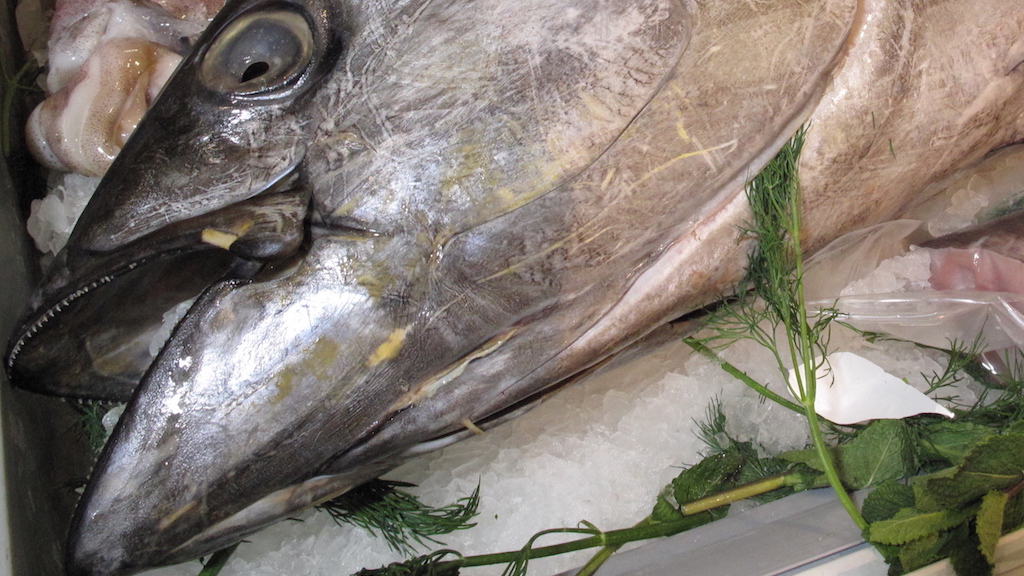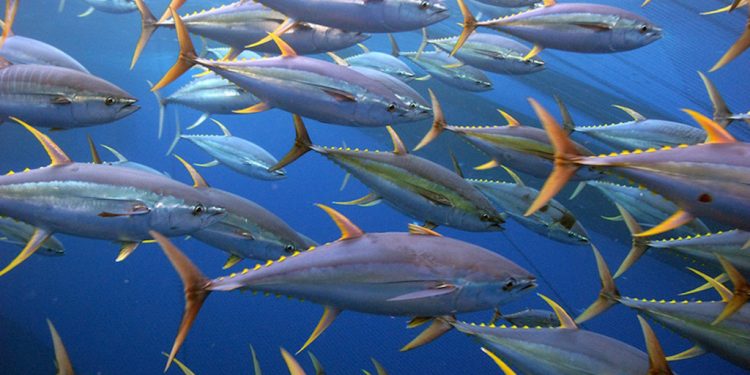The Global Tuna Alliance (GTA) has asked that the International Commission for ICCAT adopt a multi-annual commitment to protecting the health of at-risk tuna stocks.
With the 28th Regular Meeting of the International Commission for the Conservation of Atlantic Tunas (ICCAT) set to take place in Cairo, the Global Tuna Alliance – a grouping of 50 major seafood suppliers and retailers – warns that delegates need to agree on a long-lasting programme for securing the future of tropical tuna stocks in the Atlantic.
They want to see ICCAT provide the market with the long-term confidence it needs to commit to sourcing from the Atlantic with a multi-annual plan to rebuild bigeye tuna stocks within 15 years and maintain yellowfin tuna stocks within the TAC.

According to the GTA, the current status of the two stocks are precarious. The yellowfin stock has previously been overfished, though the most recent stock assessment in 2019 revealed that this was no longer the case. The most recent stock assessment published in 2021 for bigeye found that it was overfished and continues to be subject to overfishing.
In 2021, ICCAT implemented a conservation measure intended to keep catch quantities at a sustainable level. However, disputes over the allocation of catches among producing countries meant that the programme was only temporary until the following year. In 2022, a similar failure to agree to allocations meant that the 2021 plan was rolled over for another year.
‘ICCAT are, in effect, recycling the same plan over and over again. But it takes a lot of energy to have to meet each year to agree to keep rolling over the same measure. It would take a lot less energy for delegates, and deliver a lot more certainty to tuna purchasers if a multi-annual solution was reached,’ said Albert Arthur, the Global Tuna Alliance’s Director of Outreach and Engagement.
‘You have to look at it from the market’s perspective. A retailer looking to source sustainably caught tuna is much more likely to want to commit to sourcing from a region that has a 15-year programme in place to protect and rebuild stocks, than a region which cannot guarantee there will be any measure in place this time next year. And who loses out if businesses decide it’s not worth the risk? The economies of those producing countries who cannot reach a long-term agreement on catch allocations.’
As part of their ask for a multi-annual conservation programme, the GTA wants ICCAT to adopt a TAC for bigeye that would result in a high probability (>60%) of success within 15 years. They also want a precautionary yellowfin TAC that is aligned with the scientific committee’s advice and which is allocated between fishing gears and countries. But Arthur was keen to emphasise compliance.
‘For some, the motivation of securing the future of their livelihoods and local industries through responsible fishing may not be enough to prevent them from going over their allocation. Without mechanisms to identify and sanction non-compliance, any long-term plan would not be effective enough to succeed,’ Albert Arthur said.
‘We need delegates to be bold and work cooperatively to produce a fair, workable solution.’
The GTA also has a range of other requests aimed at improving the overall environmental performance, social responsibility and transparency and traceability of the Atlantic tuna fishing industry. These relate to minimum standards for electronic monitoring, Port State Measures and the adoption of triannual stock assessments.









